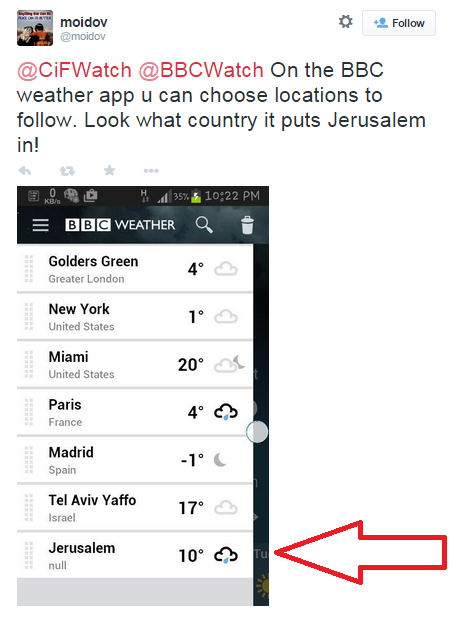1) The Jewish News has an interview with the creator of a new documentary concerning reporting from the Middle East.
“Curious to discover how this came to be the media’s viewpoint, Himel has interviewed combatants, civilians and politicians from both sides of the conflict for his provocative documentary, Eyeless In Gaza, which premieres in London later this month. […]
“It’s something I call ‘group think’,” explains Himel. “Group think isn’t a malicious attempt to lie or distort the truth, but there is a strong herd instinct of what is allowable and what is not. […]
“The idea of objectivity, that was very sacrosanct in journalism 50 years ago, is basically gone. Everything is from a point of view today, so you can’t just rely on one source – even if it is an established source.””
2) Freelance journalist Hunter Stuart has written an interesting account of his change of views following a stint in Jerusalem.
“In the summer of 2015, just three days after I moved to Israel for a one-and-a-half year stint freelance reporting in the region, I wrote down my feelings about the Israeli-Palestinian conflict. A friend of mine in New York had mentioned that it would be interesting to see if living in Israel would change the way I felt about it. My friend probably suspected that things would look differently from the front-row seat, so to speak.
Boy was he right.”
3) The JCPA takes a look at the evolution of the two-state solution.
“The term “two-state solution” seems to have become a form of “lingua franca” within the international community, the magic panacea for all the ills of the Israeli-Palestinian dispute and the wider problems of the Middle East.
Not a day goes by without some leading politician, journal, or international body mentioning it as the buzz-word for the ultimate outcome, while at the same time usually accusing Israel – and only Israel – of “undermining the two-state solution.””
4) The Meir Amit Intelligence and Terrorism Information Center has produced a summary of Palestinian terrorism in 2016.
“In 2016 there was an increase in the number of shooting attacks. Shooting attacks made up 23% of all the significant terrorist attacks carried out during the year. The number of shooting attacks was also high in January 2017. In 2016 shooting attacks accounted for the deaths of ten people, more than half of those killed during the year.”




